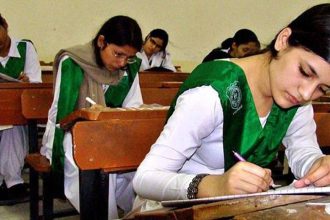Pakistan’s Supreme Court has resumed hearings on petitions against the 26th Constitutional Amendment, passed in October 2024. During the live session, Justice Jamal Khan Mandokhail said, “Whether they like it or not, the judges of the Supreme Court have accepted the 26th Amendment.” This amendment limits judicial powers, sets a three-year term for the Chief Justice of Pakistan (CJP), and allows parliamentary selection. Many believe it threatens judicial independence.
An eight-judge Constitutional Bench (CB) is hearing the case. The bench is led by Justice Amin-ud-Din Khan and includes Justices Muhammad Ali Mazhar, Ayesha Malik, Syed Hasan Azhar Rizvi, Musarrat Hilali, Naeem Akhtar Afghan, and Shahid Bilal Hassan. Petitioners such as Pakistan Tehreek-e-Insaf (PTI), Jamaat-e-Islami, and various bar associations want the amendment removed.
Munir A. Malik from the Balochistan High Court Bar Association also called for a full court hearing. He said the CB has the powers of the Supreme Court. “The Judicial Commission of Pakistan (JCP) can nominate any judge,” he added. Justice Ayesha Malik questioned if the full court can be formed under this amendment, while Justice Hilali suggested excluding judges promoted after the amendment. Justice Mandokhail defended these judges, saying, “New judges are honourable and not from another country.”
Read: Pakistan Supreme Court Resumes Hearing on 26th Amendment Challenges
Advocate Abid Zuberi, representing former Supreme Court Bar Association presidents, said a full court does not need all judges. He suggested the pre-amendment Practice and Procedure Committee could form it. The bench paused the hearing till October 13, 2025.
Petitioners argue the amendment’s procedure is invalid under Article 239. They say the two-thirds parliamentary vote happened without free consent. They want invalidation of judicial evaluation rules (Article 175A(1), 18-20) and the CJP appointment rules (Article 175A(3)) as these hurt judicial freedom. They also seek repeal of the Supreme Court (Practice and Procedure) Act 2024 and return to the original way of selecting the CJP.
Justice Mandokhail’s remarks show how judges have adapted to this controversy. This case could reshape Pakistan’s judiciary, with calls for full court hearings testing the judges’ unity.






